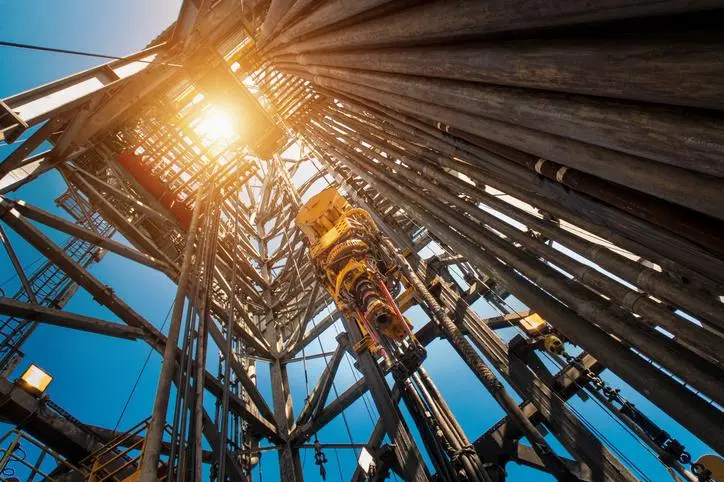PHOTO
Sept. 14 is an important day in the history of oil. Sixty years ago, on Sept. 14, 1960, five oil ministers from Venzuela, Saudi Arabia, Kuwait, Iraq and Iran gathered in Baghdad to found the Organization of Petroleum Exporting Countries (OPEC).
This was a historic moment, which would transform the oil industry and oil markets several times over.
In 1960, the oil industry was dominated by major oil companies. The countries owning the minerals did not benefit commensurately from the riches which belonged to them and their peoples. The founding resolutions stipulate that member countries study how to stabilize prices “by the regulation of production, with due regard to the interests of the producing and of the consuming nations and to the necessity of securing a steady income to the producing countries.” As the conference concluded, the Venezuelan minister of mines Juan Pablo Perez Alfonzo said: “We are now united. We are making history.” Truer words were rarely spoken. National oil companies took their just place in the world of oil.
Organizations that survive have to change with the times. OPEC has done just that: The membership was expanded in 1968 and has grown and contracted ever since, now counting 13 nations. The fortunes of countries has risen and fallen. The organization even survived the Iran-Iraq war, where two of its founding members were locked in armed conflict. In 2016, OPEC also built an alliance with 10 non-OPEC members referred to as OPEC+. This was important because of the fast rise in shale oil barrels. They are owned by smaller independent firms, which renders coordination difficult. OPEC’s coordination was expanded to OPEC+ to ensure the ability to balance markets.
Through it all Saudi Arabia was the organization’s kingpin. Its ministers of oil and energy provided guidance and stability. They cajoled countries into discipline, which is not easy particularly when production cuts eat their way into national budgets. Ahmed Zaki Yamani, Ali Al-Naimi and Prince Abdul Aziz bin Salman are just three of these towering figures.
While OPEC always took the needs of consuming nations into consideration, the organization took a more confrontational stance during the first two decades, to make itself heard and to ensure its members were adequately compensated. The two oil embargoes in the 1970s, which in reality were production cuts, shook the Western world to its core.
OPEC has since become an indispensable partner to consumer nations. A certain price stability is important for consumers and producers alike. While producers need to look after their owners and shareholders, they also need to have price predictability for their investment plans. In the case of national oil companies, governments need the visibility of the oil sector’s contributions to their national budgets. Consumers need to plan too. Industries that are exposed to oil, such as petrochemicals or the airline industry, need predictability. It is impossible for, say, an airline to plan when jet fuel jumps from taking up 30 percent of the operating budget to 70 percent overnight and then back again.
Over the past few decades, OPEC has proven time and time again that its coordinated approach is important to oil markets. When the oil price temporarily reached close to $150 per barrel in 2008 Saudi Arabia called for a conference in Riyadh and OPEC opened the taps easing the pressure. The organization also knew when to cut production as the financial crisis hit. A glut of oil with the instability that would bring was the last thing that already fragile international markets needed.
If ever there was a time to prove how important OPEC is to oil markets, it was last April when WTI temporarily went to minus $32 per barrel. Had it not been for the historic production cuts of 9.7 million barrels per day by OPEC+ on a downward sliding scale, markets would never have stabilized. The COVID-19 economic crisis with its widespread lockdowns resulted in demand dropping by nearly 30 percent during the month of April and overall around 10 percent for the full year of 2020. Even US President Donald Trump, no fan of OPEC, had to acknowledge that this action saved the US oil industry.
Market views of oil have changed over time; there were fears of peak oil, fears of oil gluts and now there is the discussion over peak demand, as well as necessary adjustments of the industry to energy transition and the management of the pandemic. Another big development is the financialization of the commodity with derivatives and ETFs. Here, too, OPEC provides leadership, with both research and consultative seminars between the energy and financial sectors. Oil has always moved markets. It is, however, important to understand how it moves financial markets and how they in turn move the commodity’s price.
Overall OPEC and OPEC+ have become an important factor in managing markets and an important interlocutor for consumers. OPEC’s overall goal, which is to ensure adequate supply of markets, has become as vital to consumers as to producers. OPEC’s management during the pandemic is a testament to this assertion. In the words of OPEC Secretary-General Mohammed Sanusi Barkindo: “Clearly what was set in motion has stood the test of time; OPEC still has the same core objectives, of order and stability in global oil markets, but its role has also broadened considerably.”
• Cornelia Meyer is a Ph.D.-level economist with 30 years of experience in investment banking and industry. She is chairperson and CEO of business consultancy Meyer Resources. Twitter: @MeyerResources
Copyright: Arab News © 2020 All rights reserved. Provided by SyndiGate Media Inc. (Syndigate.info).





















